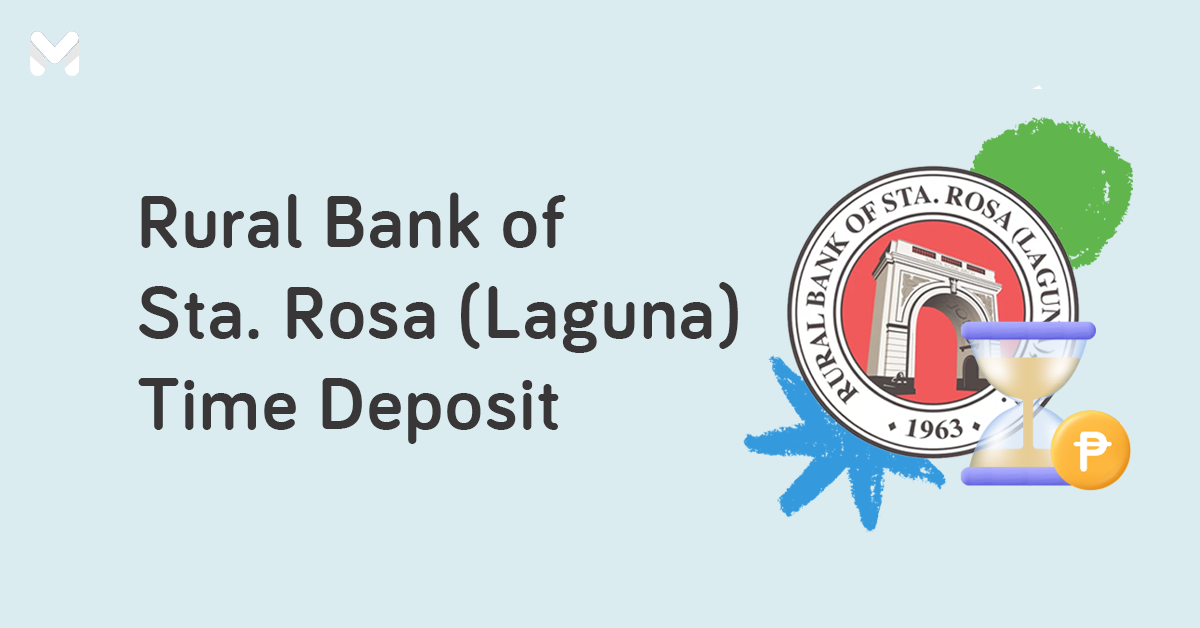Remember when you were young, and your parents would tell you the fable of ants saving up food crumbs for rainy days?
At that age, you already knew to save your allowance in case you needed materials for your art project, or just wanted to treat yourself to ice cream. Your parents and teachers also taught you that saving would help you become rich.
However, perspectives change when you grow up. Now, the fable of the ants still holds true, but saving isn't enough. If you want to build your wealth, you need to make your money work for you—you need to invest and grow your money!
Personal finance newbies and novice investors might think saving and investing are the same. However, if you compare saving vs investing, they are different concepts. Understanding both will help you map out your financial future.
Saving vs Investing: Key Similarities and Differences

So what's the difference between savings and investment?
Saving, in essence, is the act of setting aside money for expenses, unforeseen needs, and emergencies. Since you can withdraw money quickly from your bank account, saving allows you to prepare for anything life may bring.
You can also use your savings for long-term goals, such as raising funds for a home down payment, a small business, major life changes such as weddings and pregnancies, education, and retirement. There's no risk involved in saving unless you misuse the money.
There are similarities between saving and investing. Investing is also an act of setting aside money for the future. However, to differentiate investment from savings, you’re putting your money in places where it could grow bigger, such as stocks, bonds, mutual funds, dollar accounts, and real estate properties.
Think of it as planting a seed and waiting for it to become a tree, though this means that it will take time before your investments yield profits. Moreover, you will also need to deal with a couple of risks here and there.
Similar to saving, the yields or profits of investments are also used for long-term plans, such as your child's college education, retirement, business funds, and safety blanket against inflation.
Read more: Investing Money for Beginners: How to Get Started in the Philippines
The Pros and Cons of Saving
Saving comes with many benefits. For one, you have easy access to a reserve of cash whenever you need it. If you’re looking to reach a short-term goal within a specific time frame, such as going to Japan next year or buying an expensive handbag within the next six months, saving up is a more practical option.
This has its downsides, though. Inflation causes your money’s value to decrease. While the bank may offer interest rates, these menial amounts can't battle inflation.
The Pros and Cons of Investing
Investing should be part of every healthy financial lifestyle, as it gives your money the chance to grow bigger than it could in savings accounts. If the economic outlook is good, expect great returns.
However, there are factors to consider, such as local and global economic activities, the performance of the fund managers or brokers, and the reputation of the companies or businesses you invested in. These can affect the prices of stocks, mutual funds, and bonds. You might sustain losses.
This is worrisome, especially if you’re an active trader or someone just looking to reap short-term benefits. But if you don't plan to touch the money in your investment accounts in the next five years or so, you can expect things to change eventually. Your money can grow again.
It’s also worth noting that investments aren't liquid, meaning you can't withdraw them easily in case you need cash. This is especially true when it comes to real estate properties.
The podcast below talks about some of the most common questions that Filipinos have about investing vs saving money.
Read more: Invest Early to Build Wealth: This is Why Investing is So Important
Should I Save or Invest?

Is it better to save or invest your money? Should you invest in stocks or focus on growing your savings account? It's quite easy to answer.
You just have to understand the nature of your goals and their timelines. If your goal is to secure a down payment for a home, pay for grad school, or fund your wedding within the next three or five years, investing may not be the best idea.
This is because you run the risk of losing money. Keep your money in accounts with low or no risks at all, such as bank accounts.
However, if you want wads of cash to travel around the world by the time you turn 60, putting your money in high-yield yet high-risk instruments, such as stocks and mutual funds, may be worth the gamble.
Read more: To Invest or Not: The Best Investments for Every Risk Appetite
How Much Should I Invest vs Save?
Saving is the foundation of your financial wellness, so it should always come first. Most likely, the money you'll use for your investments will come from your savings. Rule of thumb when it comes to savings: you should have enough to cover your personal expenses, such as mortgage, food, utilities, and insurance.
You should save for an emergency fund at least six months' worth of your salary. Through this, you have enough in case you lose your job or your family needs sudden financial support. To further protect yourself, get life and health insurance.
Investments come in only when you've already saved enough. Ask yourself if you're fine with potentially losing the money you put into investing. If you’re testing the waters, try to set aside as little as ₱1,000 for investing. Increase it gradually once you get the hang of investing.
Through Singlife, the first purely digital life insurer in the Philippines, you can both save money and buy investments for as low as ₱500/month. Its Emergency Fund feature offers a tax-free 5% interest per annum—higher than those of traditional banks and comparable to those of digital banks. You also get to enjoy insurance coverage equivalent to 3x your declared monthly income!
Where to Invest Your Money

Now that we've tackled the topic of saving vs investing, you might be thinking of where to invest your money. There are many investment companies to choose from, but first, you need to understand their offerings. Here are some of the most basic forms of investments you may want to check out:
📌 Variable Unit-Linked Insurance
If you want to dip your toes in investing, consider getting a variable unit-linked insurance (VUL). VULs offer investment and life insurance in one, so it's perfect if you want to simultaneously grow your money and give yourself and your loved ones the gift of financial protection. Plus, you won't have to worry about making investment decisions yourself—professionals will do that for you.
Singlife also offers a beginner-friendly VUL product called Protect Your Goals. Based on a comparison of VULs in the market, Protect Your Goals will help you grow your money to ₱1 million the fastest. Want to know how? Save ₱5,700 monthly in Protect Your Goals for 10 years and keep your money invested for another two years.
Since Singlife's funds are managed by the Philippines’ top investment managers, ATRAM Trust and Metropolitan Bank & Trust Company - Trust Banking Group, rest assured that your money is in good hands. No need to worry about entry fees and commissions as well—Singlife will invest 100% of your money.
As for the life insurance component, you and your family will get coverage worth 125% of the premiums you’ve paid.
Give yourself and your family the invaluable gift of achieving your financial goals and securing your future together. To avail of Protect Your Goals, simply download the Singlife Plan & Protect App or click the banner below. Everything can be done in-app—you won't have to go through the hassle of consulting a financial advisor.
🎁 Bonus: Get Free Life Insurance from Singlife
Until May 30, get free life insurance from Singlife! This comes in the form of ₱251 Singlife Credits, covering death and disability worth up to three months of your declared salary.
Here’s how to avail of the promo:
- After downloading the Singlife Plan & Protect App and creating an account, choose Redeem a Voucher as a cash-in option.
- Enter the code MOM250. Note that you must redeem your free credits within 90 days from receipt of the code.
- Wait for ₱251 to be credited directly to your account.
Use your free credits to get up to three months’ worth of life insurance or buy other products via the Singlife Plan & Protect App. Make sure to grab yours ASAP—limited vouchers are available daily!
📌 Stocks
A stock is a unit of ownership in a corporation. When you buy a stock, you own a share of that corporation.
You can either make money by selling it or wait for its value to rise in the coming years. You can also earn income through dividends, which are cash or rewards that a company gives to its shareholders.
You can directly buy stocks and pick companies to invest in through online platforms, such as First Metro, BPI Trade, COL Financial, and ALPHASEC.[1]
📌Mutual Funds
Mutual funds refer to a pool of money collected from participating investors. A fund manager will then invest the collected money in different financial instruments, such as stocks, bonds, and other forms of equities. You can buy mutual funds through investment platforms such as COL Fund Source and FirstMetroSec FundsMart.
📌 Bonds
Bonds are an investment instrument where you lend money to a company or the government for a specific period. You can make money through the fixed interest rate. When the bond matures, you'll get your money back.
📌 Real Estate
Real estate properties, such as house and lots, condominiums, and agricultural lands also make great investments, as their value tends to appreciate over the years.
Read more: Reach Your Financial Goals with the Best Investments in the Philippines
Final Thoughts
Remember that saving vs investing are two different things, although there are some overlaps. However, their objectives are the same—to make sure you're always ready for the future. Both are also essential for building a financially healthy lifestyle.
Think about your risk tolerance and the nature of your goals. This will help you determine whether to save or invest.
Want to get started on both saving and investing? Check out the Singlife Plan and Protect App. Through its Emergency Fund and Protect Your Goals, you can easily do both! Download the app to enjoy low minimum investments, tax-free interest on your savings, insurance coverage, and more.
Source: [1] 10 Online Brokers in the Philippines with a Minimum Investment of P5,000 or Lower (Esquire Philippines, 2020)
DISCLAIMER: The opinions expressed by the writer are theirs alone, and do not reflect the opinions of Moneymax and/or its affiliates or any employee thereof. Neither Moneymax or its affiliates are responsible for the accuracy of any of the information supplied by the guest writer. The opinions expressed in this blog are for general informational purposes only and are intended to provide education about the financial industry.
Nothing in this blog constitutes investment or financial advice or any recommendation that any security, portfolio of securities, investment product, transaction or investment strategy is suitable for any specific person. This material does not take into account your personal circumstances, finances, goals and/or objectives; all of which are unique to you. Readers must make an independent decision regarding investments or strategies mentioned on this blog or elsewhere on www.moneymax.ph. We strongly recommend you consider seeking advice from your own financial or investment adviser before taking any action. We do not make any representation or warranty as to the accuracy, completeness or correctness of the information set out in this article.







_CTA_Banner.png?width=751&height=219&name=Singlife_Main_KV_(Sep_2023)_CTA_Banner.png)
_1200x350.png?width=734&height=214&name=Singlife_MOM250_Promo_(May_2024)_1200x350.png)



